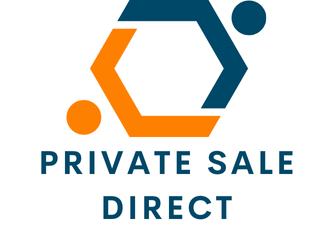Overview of Cryptocurrency Regulation in the UK
Navigating the cryptocurrency regulation landscape in the UK presents a fascinating journey. Initially, the UK approached cryptocurrencies with cautious curiosity, recognising their potential but also the risks associated. Since then, regulations have evolved substantially. Central to this progression is the UK Financial Conduct Authority (FCA).
Role of the Financial Conduct Authority (FCA)
The FCA plays a pivotal role as the main regulatory body overseeing cryptocurrency exchanges. It ensures these platforms comply with legal standards, offering some protection to consumers. The FCA mandates that exchanges implement robust anti-money laundering procedures, enhancing the credibility of crypto markets.
In the same genre : Navigating the Legal Landscape of Biometric Data Usage in UK Workplaces: Key Implications and Insights
Moreover, with the exit from the EU, commonly referred to as Brexit, the UK’s regulatory landscape faced dramatic shifts. While the EU’s influence on regulations diminished, the UK opted to develop its own tailored approach. This autonomy offers potential for bespoke regulations but also brings challenges in aligning with international standards.
Brexit’s impact cannot be understated. It provides the UK with an opportunity to forge distinct rules that cater specifically to its market needs. Nevertheless, the absence of EU alignment necessitates cautious crafting of policies to maintain global competitiveness. Thus, the UK’s commitment to robust yet adaptive cryptocurrency regulation remains clear, with the FCA ensuring the framework stays relevant and secure.
In the same genre : Transforming the Shopping Journey: Leveraging AI for Personalized Retail Experiences in the UK
Licensing Requirements for Cryptocurrency Exchanges
Cryptocurrency exchanges must navigate a complex regulatory landscape to ensure compliance with the requirements set forth by financial authorities. One prominent necessity is acquiring the correct cryptocurrency exchange licensing. Typically, these licenses cover specific activities such as trading, facilitating exchanges, and managing customer funds.
The FCA license is a crucial accreditation required in the UK. This license mandates that exchanges adhere to the principles of the Financial Conduct Authority (FCA), which governs regulated activities. Becoming FCA compliant involves undergoing a stringent application process, where exchanges need to demonstrate robust anti-money laundering measures and financial safeguards.
Obtaining a license involves several steps:
- Submission of detailed business plans
- Provision of financial statements
- Demonstrating understanding of compliance obligations
Operating without a license can lead to severe penalties. Unlicensed exchanges may face fines, enforcement actions, or even shutdowns. Moreover, failure to comply can significantly damage the exchange’s reputation and impede its ability to attract and retain customers.
Understanding and acquiring the necessary licenses, like the FCA license, is paramount for the legal operation of a cryptocurrency exchange. Embracing regulatory compliance not only protects the platform but also fosters trust with its user base, ensuring a secure trading environment.
Anti-Money Laundering (AML) and Know Your Customer (KYC) Policies
In the evolving world of cryptocurrency, AML policies serve as a fundamental shield against the misuse of digital assets for illicit activities. These regulations are specifically tailored to monitor and control financial transactions, effectively reducing the risk of money laundering. KYC requirements play an integral role by ensuring that financial institutions verify their clients’ identities, thus providing a compliance measure that aligns with international standards.
The essence of AML regulations in the cryptocurrency domain focuses on establishing frameworks that enable the tracing of transactions and identification of suspicious activities. This involves implementing technology-driven solutions capable of analysing large volumes of data, thus deterring illicit financial flows.
KYC requirements for onboarding clients are stringent, yet essential. They involve collecting personal information such as identification numbers, legal documents, and biometric data to confirm the identity of new clients. These processes not only protect the institutions but also foster a secure environment for legitimate users.
Several financial institutions have successfully implemented robust compliance strategies, such as continuous transaction monitoring and enhanced due diligence procedures. These measures ensure that firms remain alert and proactive against potential threats. By enforcing these compliance measures, organisations can maintain their integrity and gain trust from stakeholders in the cryptocurrency ecosystem.
Taxation Issues for Cryptocurrency Exchanges
Navigating cryptocurrency taxation is vital for exchanges due to evolving policies. Key tax considerations include ensuring accurate transaction reporting and understanding how cryptocurrency gains are classified under current tax laws. This not only affects compliance but impacts the financial operations of exchanges.
Responsibilities towards HM Revenue and Customs (HMRC) are crucial, as they require thorough documentation of all transactions involving crypto assets. HMRC’s stance is clear: crypto exchanges must accurately report profits, losses, and capital gains. This includes keeping detailed records of all users’ transactions to ensure transparency and accuracy in taxation.
To manage liabilities efficiently, exchanges should develop strategies for effective tax compliance. This involves implementing a robust system to track transactions and engage in proactive tax planning. Hiring specialists familiar with both crypto and tax legislation can streamline this process, ensuring compliance and mitigating risk.
Adopting tax obligations into daily operations is essential. Staying updated with any tax regulation changes will help in avoiding potential penalties and liabilities. By doing so, cryptocurrency exchanges can maintain a positive reputation and foster trust with both HM Revenue and Customs and their user base. Engaging in these practices not only upholds legal standards but also facilitates the sustainable growth of the exchange platform.
Operational Considerations for Launching a Cryptocurrency Exchange
Launching a cryptocurrency exchange requires a robust and reliable technology infrastructure to ensure seamless operations. The infrastructure should support high volumes of transactions while maintaining optimal performance. This involves employing scalable server solutions and efficient software architectures to manage user activities and market demands.
Furthermore, the significance of cybersecurity measures cannot be overstated in cryptocurrency exchange operations. Protecting against cyber threats demands implementing advanced security protocols like encryption, firewalls, and multi-factor authentication. Regular security audits and updating systems to counteract new vulnerabilities are pivotal to safeguarding the platform’s integrity.
Adhering to best practices for user data protection is equally vital. This includes collecting only the necessary user data, encrypting sensitive information, and providing users with transparent data policies. Compliance with data protection regulations like GDPR further ensures users’ trust and mitigates legal risks. Moreover, fostering a security-oriented culture among employees, where vigilance and responsibility in protecting user data are prioritized, can greatly enhance data security.
By focusing on these key areas—technology infrastructure, cybersecurity measures, and user data protection—cryptocurrency exchanges can operate successfully while fostering trust and offering a secure environment for traders.
Legal Pitfalls and Challenges to Anticipate
Navigating the complex landscape of cryptocurrency exchanges presents numerous legal challenges that can catch even the most prepared businesses off guard. Compliance pitfalls, such as failing to adhere to regulatory requirements, often arise from inconsistent global regulations and can lead to substantial fines or forced shutdowns. New exchanges frequently encounter these issues when they overlook the intricate legal frameworks required in each jurisdiction where they operate.
One prominent case involved a leading exchange that faced hefty penalties due to non-compliance with Anti-Money Laundering (AML) regulations. This example underscores the importance of a thorough understanding of compliance pitfalls and the necessity of maintaining robust legal protocols to mitigate such risks.
To avoid such legal entanglements, it is advisable for exchanges to adopt proactive measures, including:
- Engaging legal experts specialising in cryptocurrency regulations.
- Implementing comprehensive compliance programs tailored to the specific legal environments of operation.
- Regularly updating these programs to meet evolving legal expectations and emerging legal challenges.
Ultimately, understanding and planning for these legal challenges can be the difference between a thriving exchange and one hindered by regulatory issues. Establishing a foundation of legal vigilance ensures compliance and facilitates sustainable growth.
Resources for Legal Consultancy and Regulatory Updates
Navigating the complex world of cryptocurrency requires access to trustworthy legal consultancy resources. Several reputable legal consulting firms specialize in cryptocurrency-related matters. They assist businesses in understanding compliance, regulatory guidelines, and other legal intricacies critical for success. Key firms often provide services such as risk assessment, contract drafting, and dispute resolution. It’s vital for companies to consult with these experts to mitigate potential legal challenges.
Staying abreast of regulatory updates is crucial in this fast-evolving industry. Regulatory bodies frequently revise compliance requirements to adapt to new technological advancements and address security concerns. Businesses must remain informed about these changes to avoid fines or legal actions. Regularly checking government publications and legal bulletins can keep stakeholders informed of any new legislations impacting the sector.
Engaging with industry associations offers substantial benefits. These organizations provide valuable insights, resources, and networking opportunities. They assist members in understanding legislation, sharing best practices, and advocating for industry-friendly policies. Joining such associations can be a strategic move for receiving support and robust guidance. Moreover, being part of a community fosters collaboration, innovation, and growth within the industry.











